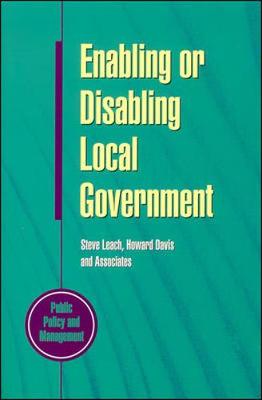Public policy & management
1 total work
* What are the main underlying patterns in the changes which central government have introduced in relation to local government over the past 10-15 years?
* What are the major choices of direction facing local authorities, in working out how to respond to these (and other) changes?
* What is the significance of local government reorganization within this overall pattern of change, and how is it likely to turn out?
Over the past ten years or so there has been an unprecedented amount of change in the world of British local government: for instance the growth of Compulsory Competitive Tendering; the opportunity for schools to opt out of local authority control; the new responsibilities for community care; the introduction of the community charge (or poll tax) and its subsequent replacement with council tax. And now local government is in the throes of a major and controversial reorganization. There have been several books which have described such changes but this one represents the first systematic attempt to draw out the overall implications of these changes for the future role of local government as an institution. It argues that there are major strategic choices of direction facing local authorities, and that these choices will shape management structures and many other aspects of local choice. The book provides a clear framework of analysis to enable readers to understand the forces at work in this particularly turbulent and unstable period of local government's history, and to see where they are leading.
* What are the major choices of direction facing local authorities, in working out how to respond to these (and other) changes?
* What is the significance of local government reorganization within this overall pattern of change, and how is it likely to turn out?
Over the past ten years or so there has been an unprecedented amount of change in the world of British local government: for instance the growth of Compulsory Competitive Tendering; the opportunity for schools to opt out of local authority control; the new responsibilities for community care; the introduction of the community charge (or poll tax) and its subsequent replacement with council tax. And now local government is in the throes of a major and controversial reorganization. There have been several books which have described such changes but this one represents the first systematic attempt to draw out the overall implications of these changes for the future role of local government as an institution. It argues that there are major strategic choices of direction facing local authorities, and that these choices will shape management structures and many other aspects of local choice. The book provides a clear framework of analysis to enable readers to understand the forces at work in this particularly turbulent and unstable period of local government's history, and to see where they are leading.
